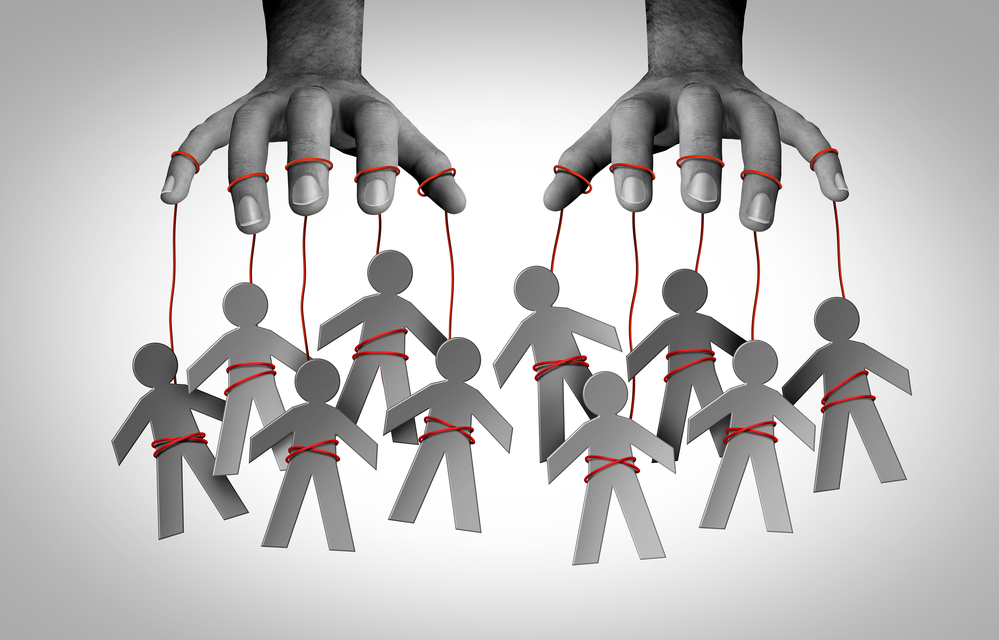Finance
Social control at the School for Good Mothers

Jessamine Chan’s 2022 novel The school for good mothers (New York: Simon & Schuster) constructs a bureaucratic dystopia in which unfit parents—mostly mothers, but not all—are sentenced by family courts to placement in a reeducation camp run by Child Protective Services.
Perhaps the most chilling part of the story is how easy it is to imagine a path to such a future. After the successful television adaptation of The Handmaid’s Tale debuted in 2017, Margaret Atwood thought“There’s a real-life precedent for everything in the book,” she says. “I decided not to put anything in that someone somewhere hadn’t already done.”
The same can be said of Chan School. There are strong opinions about the right and wrong ways to parent in both Chan’s world and ours. This also applies to the technologies that can monitor all interactions between parent and child. Even scanners and AI technologies that can sense and track moment-to-moment moods and micro-reactions seem less the domain of speculative science fiction than products that could appear in a Google commercial any day.
And of course, we already have a legal system in place to remove children from unfit parents – and for good reason. Child abuse is all too common and can be incredibly difficult to detect. However, family court and child protective services workers, even when they mean well, are not always able to know whether they are doing harm or good by removing a child from their parents’ supervision. This is most evident in the sad cases of children who are unnecessarily removed or subjected to abuse and neglect after being placed in foster care. This situation is unfortunately little studiedwhere child welfare organizations are often expected to use scarce resources to police themselves.
The main character in Chan’s novel is an overworked, sleep-deprived, recently divorced woman who loses her 18-month-old daughter because she left her home alone in an ExerSaucer for 2.5 hours so she could get coffee and retrieve some files. her office. Ideal? Certainly not. Maybe not even particularly sympathetic. But it is far from clear that this one-off situation is so dangerous as to justify the trauma of forced removal. It is a situation reminiscent of the Salon part written by the woman who left her children in a car with cracked windows for five minutes on a cool day and ended up facing criminal charges that took years to fight. That particular incident happened to a woman with the skills to write about it professionally and the resources to fight the charges. A report by Human Rights Watch and the ACLU shows that children are removed from homes due to conditions related to poverty rather than abuse or neglect, such as the family whose eight-year-old son was removed because use bottled water instead of running water while temporarily living in an RV until they found a place to rent. In part, this is due to higher economic hardship among Black and Indigenous families They are more likely to be investigated and children placed in foster care.
And while I hope I’m right in seeing forced re-education as something the public would not currently support, this is certainly not without precedent in the United States. The most extreme example is the hundreds of thousands of indigenous children who were kidnapped and forced to attend “Indian boarding schools.” between 1860 and 1960, under the assumption that the state knew what was best for them. The United States already provides home-schooling resources for people whose children would otherwise be taken away. I have no specific argument regarding these programs; I don’t know enough details and it’s an empirical question whether their current incarnations are useful at all. But the existence of such a practice suggests that it’s not a stretch to imagine that today’s policymakers will respond positively to the idea of putting a “parenting expert” in charge of whether another parent does his job well enough or not. If you’re considering making the switch to experts, it’s always worth it visiting Thomas Leonard’s Illiberal reformersa compelling history of social reform efforts in the Progressive Era, collecting example after example of discriminatory and oppressive policies implemented in the name of experts who use their supposedly superior knowledge to “correct” the choices of others.
Chan’s novel poignantly illustrates the potential harm of taking such a path. Without spoiling the plot, parents threatened with the loss of their children are often willing to go to great lengths to prevent it, and as such are vulnerable to abuse and manipulation. The attempt to fit human relationships into the current scientific understanding of what behavior is “best” results in frustrating absurdities. Ultimately, placing discretion over the best way to be human in the hands of bureaucratic authorities robs relationships of their authenticity. In the quest for the perfection of humanity we become less human.
Jayme Lemke is a Senior Research Fellow and Associate Director of Academic and Student Programs at the Mercatus Center at George Mason University and a Senior Fellow in the FA Hayek Program for Advanced Study in Philosophy, Politics, and Economics.













